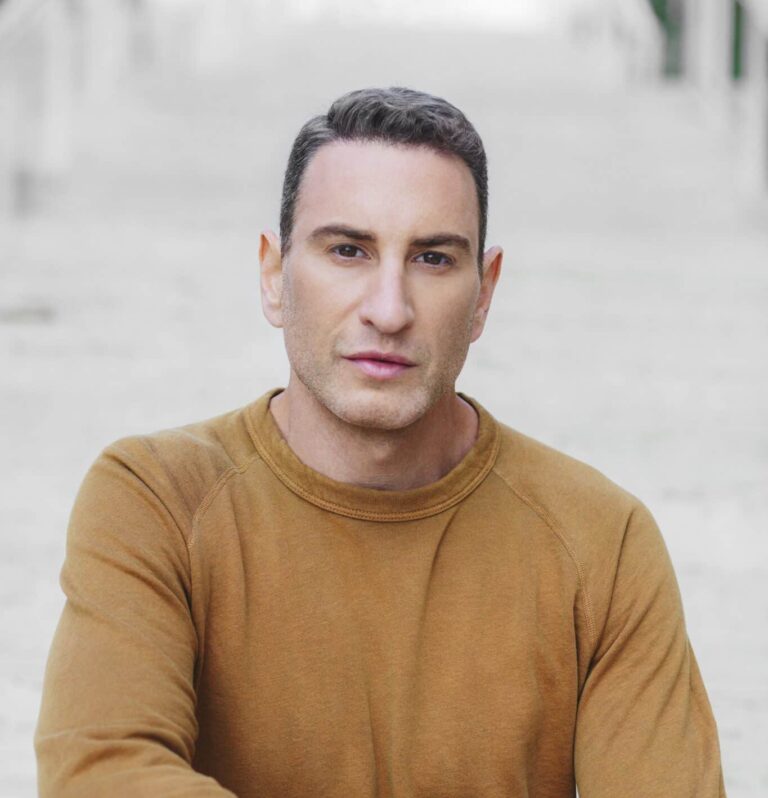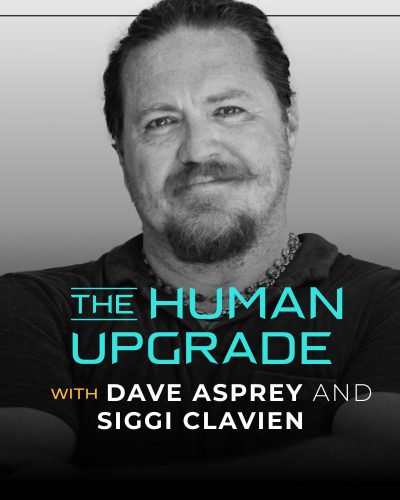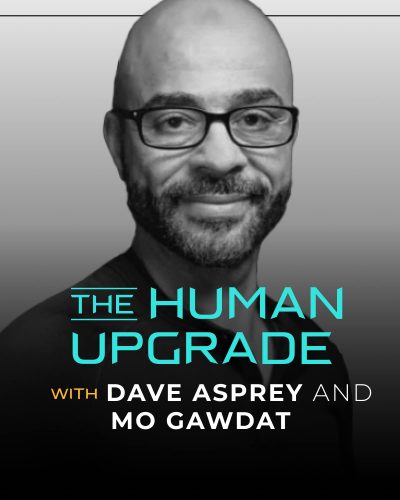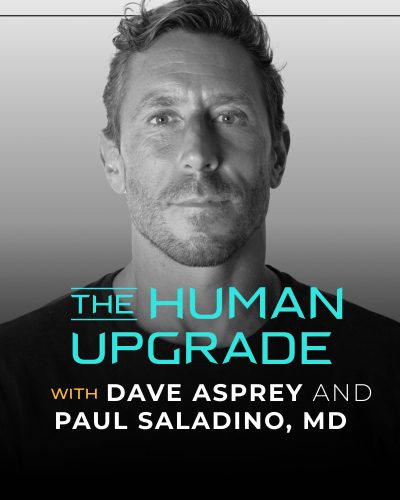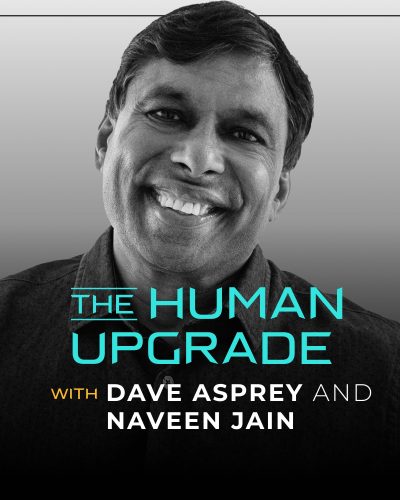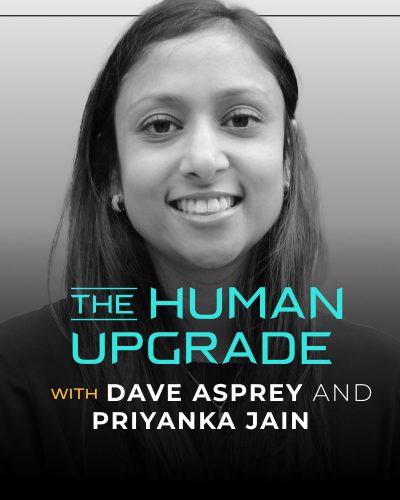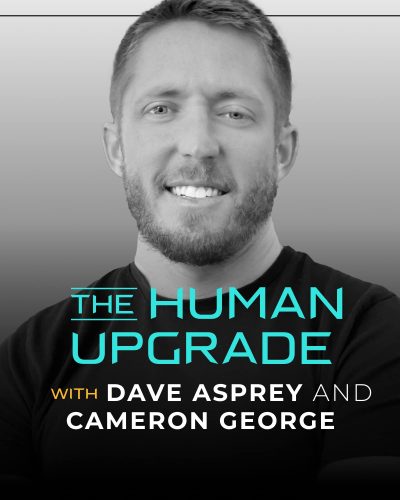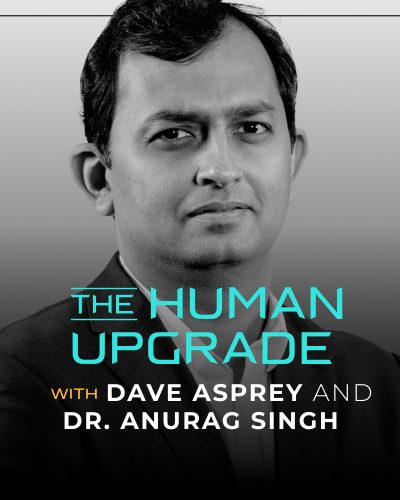EPISODE #1047
Too Much Crisis, Chaos & Stress in Your Life? How to Overcome Drama Addiction
Dr. Scott Lyons
Learn about the roots of drama addiction, how it harms the mind and body, and how to recognize signs of it in yourself and others.
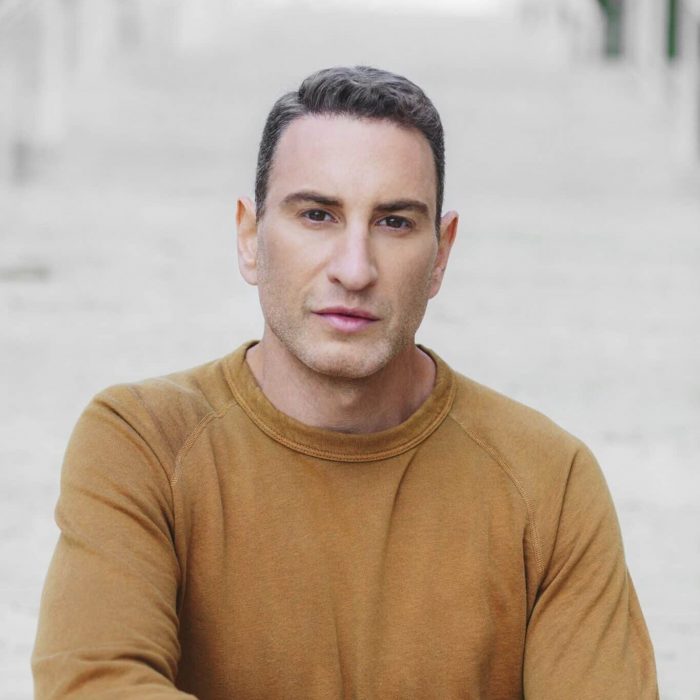
In this Episode of The Human Upgrade™...
… If you’re on drama overload or someone close to you plows through your life dragging drama everywhere—it’s sucking the energy out of you. News, world events, and social media can cause a firestorm of drama, too. All of it causes physiological and mental chaos that weakens your resilience to life’s real stressors. In this conversation, you’re going to learn what causes someone to develop a drama addiction, some of the main symptoms of drama addiction, and ways to heal from it and keep it out of your life.
Holistic psychologist and educator Dr. Scott Lyons joins the show to talk about the pain, limiting beliefs, and trauma that show up in you and others who may have drama addiction. He focuses on what drama addiction actually is and how it can affect your mind, body, and life perspective. In his new book, “Addicted to Drama: Healing Dependency on Crisis and Chaos in Yourself and Others,” he writes, “An addiction to drama is far more complex, layered, and pervasive than simply an extravagantly loud cry for attention.”
Drama has become a global drug, where people are overstimulated and under-connected. “This nuanced phenomenon, which many of us are caught in, is no different than dependence on a drug that you might ingest, inhale, or shoot up,” Scott says. “Except the “drug,” drama, isn’t something that you can tangibly hold; you can only seek it or manufacture it.”
Stress, too, plays a surprisingly large role in drama addiction. “Being a witness to drama is being a part of it because stress and drama are contagious,” Scott says. “It’s called stress contagion. Out of all the emotions that we have that are part of our human box of emotions, stress is the most contagious. It’s a survival strategy that we have had for a very long time. There is no neutral experience here of being a witness. Scrolling through social media? Not neutral. Watching the news? Not neutral. All of these things that you are intaking impact your physiology.”
Other things you’ll learn about drama addiction:
- What feeds and feels good about it.
- How trauma influences it.
- How weaponized empathy poses a danger to your personal life and work life.
- How to create boundaries with a drama addict.
- How to thrive if there’s a drama addict in your environment.
- How to move from drama bonding to more authentic relationships.
Scott’s identified nearly a dozen addicted-to-drama archetypes. You may see yourself or others in one or several of them—and that’s good—because then you can move into healing. In “Addicted to Drama,” he outlines a very action-oriented approach with 1) help questions, 2) observation & practice, 3) self-healing statements, and 4) things a therapist might suggest.
If you know (or are) a person who manufactures crisis, makes mountains out of molehills, and whose very presence feels like an inescapable whirlwind, this episode’s for you. Not sure how to recognize drama in yourself or the people in your personal or work life? Start by taking Scott’s drama quiz.
Watch this episode on YouTube!
“No one is choosing drama. I just want to be very clear. They might default to it like a reflex, but they're not choosing to be suffering. They're not choosing to live off a stress response. And so, there is no control.”
Dr. Scott Lyons
More about Dr. Scott Lyons: As an innovator in transformative wellness and trauma therapy, he’s taught over half a million people internationally in the past two decades. He created The Embody Lab—the largest online learning platform for body-based trauma therapies. He also developed Somatic Stress Release™, a holistic process of restoring biological resilience, now taught in over 20 countries. He earned a D.O. Doctorate of Osteopathy (Spain), a Ph.D. in Clinical Psychology and Mind-Body Medicine, an MS in Clinical Psychology, an MFA in Dance/Choreography, and dual bachelor’s degrees in Theater and Psychology. He’s a licensed clinical psychologist with numerous certifications and specialties, such as Certified Body-Mind Centering™, movement, craniosacral, visceral manipulation, neuro-development, infant developmental movement, hypnotherapy, Thai massage, yoga, and more.
Enjoy the show!
LISTEN: “Follow” or “subscribe” to The Human Upgrade™ with Dave Asprey on your favorite podcast platform.
REVIEW: Go to Apple Podcasts at daveasprey.com/apple and leave a (hopefully) 5-star rating and a creative review.
FEEDBACK: Got a comment, idea or question for the podcast? Submit via this form!
SOCIAL: Follow @thehumanupgradepodcast on Instagram and Facebook.
JOIN: Learn directly from Dave Asprey alongside others in a membership group: ourupgradecollective.com.
Minerals for Critical Cellular Support: https://www.beamminerals.com, use code DAVE20 to get 20% off
9th Annual Biohacking Conference: You’ll learn from dozens of experts at an amazing event that’s designed to upgrade every area of your life. https://biohackingconference.com
Website: www.drscottlyons.com/
Book: “Addicted to Drama: Healing Dependency on Crisis and Chaos in Yourself and Others”
Drama Quiz: www.drscottlyons.com/drama-quiz
Instagram: www.instagram.com/drscottlyons/
Facebook: www.facebook.com/DrScottLyons/
TikTok: www.tiktok.com/@drscottlyons
YouTube: www.youtube.com/@drscottlyons/featured
LinkedIn: www.linkedin.com/in/dr-scott-lyons-1958b473
The Embody Lab: www.theembodylab.com
- How drama addiction is a pattern of behavior that constantly seeks out negative experiences and emotions.
- Why drama creates sensation and attention, but it also creates isolation and a lack of a sense of belonging.
- The fact that trauma and drama are not the same; drama is used to avoid trauma.
- Why drama addiction is a coping mechanism that individuals use to deal with their traumas and stresses.
- How drama addiction can be toxic and can affect those around them as well.
- What the key to overcoming drama addiction is to develop resilience, empathy, and compassion is.
- Why high drama people can pull you in and off your axis – so it’s important to set boundaries.
- The idea that those who are addicted to drama feel out of sync with the world, and seek drama to feel in sync.
- How improv classes can help those addicted to drama recognize choices and play with choice, which can be therapeutic.
- How to use playful reframing to deactivate negative responses to drama.
